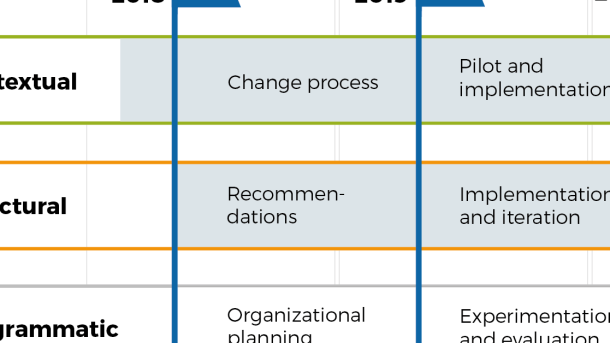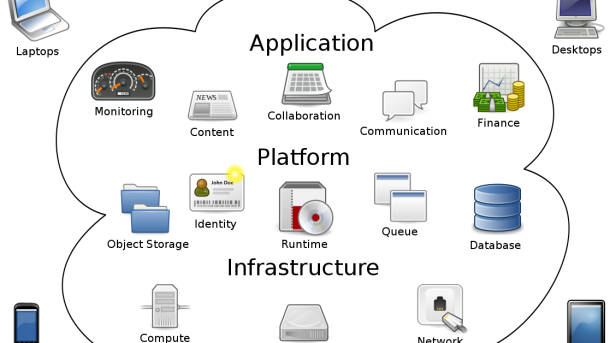Embark on a transformative journey towards the clouds with our comprehensive roadmap to a Cloud Engineer career path. Discover the key milestones and insights that will guide you through this rapidly evolving field, unlocking endless opportunities for innovation and success.
Introduction to Cloud Engineering
Cloud engineering is a dynamic and in-demand field that offers promising career opportunities. As a cloud engineer, you will be responsible for designing, implementing, and maintaining cloud-based solutions. This involves working with various technologies and platforms to ensure the smooth operation of cloud infrastructure.
To excel in this field, it is crucial to have a strong foundation in Linux. Linux is an open-source operating system that is widely used in the cloud computing industry. By gaining proficiency in Linux, you will be equipped with the necessary skills to work with cloud technologies and perform tasks such as system administration, troubleshooting, and implementation.
Linux training courses provide a comprehensive understanding of the operating system and its features. These courses cover topics such as command-line navigation, file management, network configuration, and security. By enrolling in a Linux training program, you will acquire the knowledge and skills needed to become a successful cloud engineer.
In addition to Linux, it is also beneficial to have a solid understanding of other relevant technologies such as programming languages, databases, and computer networks. This knowledge will enable you to effectively design and develop cloud-based applications and systems.
By embarking on a career in cloud engineering and investing in Linux training, you will position yourself for a rewarding and fulfilling professional journey. Whether you aspire to work for a large tech company or start your own venture, the skills and knowledge gained through cloud engineering will be invaluable. So, take the first step towards your cloud engineer career path and unlock a world of opportunities in the ever-evolving realm of cloud computing.
Cloud Engineer Salary and Job Outlook
| Job Title | Salary Range | Job Outlook |
|---|---|---|
| Cloud Engineer | $80,000 – $150,000 | Positive |
| Senior Cloud Engineer | $120,000 – $200,000 | Positive |
| Cloud Architect | $130,000 – $220,000 | Positive |
| Cloud Solutions Architect | $140,000 – $250,000 | Positive |
Cloud Engineers are highly sought after in today’s tech industry. With the increasing adoption of cloud computing by businesses, the demand for skilled professionals in this field is expected to continue growing. Cloud Engineers play a crucial role in designing, implementing, and managing cloud infrastructure for organizations. They are responsible for ensuring the efficiency, security, and scalability of cloud systems.
Responsibilities of a Cloud Engineer
– Design and implement cloud-based solutions using various technologies and tools.
– Ensure the availability, reliability, and scalability of cloud infrastructure.
– Collaborate with cross-functional teams to develop and deploy applications in the cloud.
– Troubleshoot and resolve issues related to cloud computing and software implementation.
– Implement and maintain cloud security measures to protect data and systems.
– Optimize cloud resources and improve performance through mathematical optimization and machine learning.
– Manage and maintain databases and data storage in the cloud.
– Stay updated on the latest trends and best practices in cloud computing.
– Provide support and guidance to other team members in using cloud technologies effectively.
– Contribute to the overall architecture and design of cloud-based systems.
– Continuously learn and acquire new skills to stay ahead in the evolving field of cloud engineering.
Cloud Development and Administration Management
To excel in this field, it is important to undergo Linux training. Linux is the preferred operating system for cloud environments due to its stability, security, and flexibility. By acquiring Linux skills, individuals can effectively manage cloud resources and ensure the smooth operation of cloud-based applications.
Furthermore, Cloud Development and Administration Management requires knowledge of cloud management tools, computer programming languages, and database systems. Familiarity with software architecture and computer networks is also beneficial.
Cloud engineers must possess problem-solving skills and be able to troubleshoot issues that may arise in cloud environments. They should stay updated with the latest advancements in cloud computing and be familiar with concepts such as software as a service (SaaS), infrastructure as a service (IaaS), and reliability engineering.
In addition to technical skills, communication and teamwork are crucial for a successful cloud engineer. Cloud projects often involve collaborating with cross-functional teams, including system administrators, frontend and backend developers, and data analysts. Therefore, strong interpersonal skills are essential.
Project Management in Cloud Engineering

In cloud engineering, project management plays a crucial role in ensuring the success of cloud-based projects. As a cloud engineer, understanding project management principles and practices is essential for effectively managing and delivering cloud projects.
Project management in cloud engineering involves coordinating and overseeing various aspects of a project, such as planning, organizing, and controlling resources. This includes managing timelines, budgets, and resources to ensure the project is completed on time and within budget.
Cloud engineers need to have a deep understanding of cloud technologies and their application in project management. This includes knowledge of software as a service (SaaS) and infrastructure as a service (IaaS) models, as well as cloud computing security and analytics.
Effective project management in cloud engineering also requires strong problem-solving and troubleshooting skills. Cloud engineers must be able to identify and resolve issues that may arise during the project, such as performance bottlenecks or security vulnerabilities.
Furthermore, cloud engineers should have expertise in computer programming and database management to develop and maintain cloud-based applications. They should also be familiar with computer network architecture and have the ability to work with cross-functional teams.
To excel in project management in cloud engineering, it is recommended to undergo Linux training. Linux is a widely used operating system in cloud environments and having proficiency in Linux can greatly enhance a cloud engineer’s career prospects.
By acquiring the necessary skills and knowledge in project management, Linux, and cloud technologies, aspiring cloud engineers can pave their way towards a successful career in this rapidly evolving field.
Effective Communication for Cloud Engineers

Effective communication is a crucial skill for cloud engineers. It allows them to convey their ideas, collaborate with team members, and effectively troubleshoot any issues that may arise. As a cloud engineer, you will often need to explain complex technical concepts to non-technical stakeholders or clients. This requires the ability to break down information in a clear and concise manner. It is also important to actively listen and understand the needs and concerns of others.
By mastering effective communication, cloud engineers can navigate the complexities of cloud computing and work seamlessly with cross-functional teams.
Problem-Solving in Cloud Engineering
To excel in this field, it is important to have a strong foundation in *problem-solving* and critical thinking. This includes understanding the underlying technology and being able to apply best practices in *IT infrastructure* and *software development*.
Additionally, knowledge of *programming languages* and *mathematical optimization* can be beneficial in solving complex problems. Machine learning and artificial intelligence can also play a role in analyzing *analytics* and improving system performance.
Being an expert in cloud engineering requires the ability to work in cross-functional teams and collaborate with system administrators, application software developers, and frontend and backend engineers. It also involves staying up-to-date with the latest technologies and industry trends.
By developing your problem-solving skills and staying committed to continuous learning, you can pave your way to a successful career in cloud engineering. So, consider taking Linux training to gain the necessary skills and knowledge to embark on this exciting career path.
Cloud Engineer Salaries in Different Countries and Industries
| Country | Industry | Salary Range |
|---|---|---|
| United States | Technology | $95,000 – $150,000 |
| United Kingdom | Finance | £60,000 – £100,000 |
| Australia | Healthcare | AUD 90,000 – AUD 130,000 |
| Germany | Manufacturing | €70,000 – €110,000 |
| Canada | Telecommunications | CAD 80,000 – CAD 120,000 |
| India | E-commerce | ₹8,00,000 – ₹18,00,000 |
Developing Relevant Skills for Cloud Engineering
To become a successful cloud engineer, it is important to develop relevant skills that will set you apart in the field. One key skill to focus on is Linux training. Linux is widely used in the cloud computing industry, and having a strong understanding of this operating system will give you a solid foundation for building your career in cloud engineering.
Linux training will provide you with the knowledge and skills needed to navigate and manage Linux systems, which are commonly used in cloud environments. This includes understanding the command line interface, managing users and permissions, and troubleshooting common issues. Additionally, Linux training will also cover topics such as scripting and automation, which are essential skills for cloud engineers.
By investing in Linux training, you will gain the expertise needed to effectively work with on-premises software and cloud computing technologies. This will enable you to contribute to the development and implementation of cloud management solutions, ensuring the security and reliability of cloud systems.
In addition to Linux training, it is also beneficial to develop skills in areas such as computer security, problem solving, and IT infrastructure. These skills are crucial for ensuring the safety and availability of cloud systems, as well as effectively addressing any issues that may arise.
Building Hands-on Experience in Cloud Engineering
To build hands-on experience in cloud engineering, it is crucial to gain practical knowledge and skills. One effective way to do this is by taking Linux training. Linux is the foundation of many cloud computing systems and mastering it can provide a strong base for a cloud engineer career.
Linux training will cover important topics such as computer architecture, computer network, and access control. It will also help you understand cloud computing security and best practices for ensuring reliability and data storage. Additionally, it will enhance your problem-solving abilities and make you an expert in using various programming languages.
By acquiring hands-on experience in Linux, you will be well-prepared to work in a cross-functional team and effectively manage application software in the cloud. This will open up opportunities to work with cutting-edge technologies like artificial intelligence and virtual reality.
Obtaining Cloud Engineer Certifications
To start your journey, consider taking Linux training courses. Linux is a widely used operating system in the cloud industry and having a strong foundation in Linux will give you an edge in your career.
By gaining Linux skills, you will be equipped to handle on-premises software, computer security, and computer architecture. These skills are essential for a Cloud Engineer as they will enable you to design and maintain secure and efficient cloud infrastructure.
Additionally, understanding programming languages and problem-solving techniques is crucial for a Cloud Engineer. You will need to be able to write scripts, automate processes, and troubleshoot issues efficiently.
Access control and reliability engineering are also important aspects of a Cloud Engineer’s role. You will be responsible for managing user access to cloud resources and ensuring the reliability and availability of cloud services.
When pursuing Cloud Engineer Certifications, it is essential to follow best practices and stay updated with the latest industry trends. Organizations like the International Data Group offer reputable certification programs that validate your expertise in cloud technologies.
Having a strong foundation in computer data storage is also crucial as a Cloud Engineer. You will be responsible for managing and optimizing data storage in the cloud, ensuring efficient and secure data handling.
Working in a cross-functional team and collaborating with system administrators and other professionals will be a common occurrence in your career as a Cloud Engineer. Therefore, developing good communication and teamwork skills is essential.
As the cloud market continues to grow, the demand for skilled Cloud Engineers is on the rise. By obtaining Cloud Engineer Certifications and continuously improving your skills, you will position yourself for success in this fast-paced and evolving industry.
Preparing for Cloud Engineer Interviews
===============================
To excel in a cloud engineer interview, it is essential to have a solid foundation in Linux. Linux powers the majority of cloud platforms and having Linux skills is highly valued in the industry.
Start by taking Linux training courses or online tutorials to gain a comprehensive understanding of the operating system. Familiarize yourself with common Linux commands and practice working with different distributions.
Additionally, focus on honing your problem-solving skills. Cloud engineers are often faced with complex issues and need to think critically to find solutions. Develop your analytical and troubleshooting abilities by practicing real-world scenarios.
Having knowledge of a programming language is also beneficial. Python, for example, is commonly used in cloud engineering for scripting and automation tasks. Understanding programming concepts and being able to write clean and efficient code will give you an advantage.
Familiarize yourself with cloud computing concepts and technologies such as virtualization, containers, and distributed systems. Understand how cloud infrastructure works and the various services offered by popular providers like AWS, Microsoft Azure, and Google Cloud Platform.
Keeping up with industry trends and best practices is crucial. Stay informed about the latest advancements in cloud technology, security, and data storage. Follow reputable sources like International Data Group (IDG) and attend relevant conferences or webinars.
Lastly, develop your communication and teamwork skills. Cloud engineers often work in cross-functional teams and need to collaborate effectively. Practice articulating technical concepts to both technical and non-technical stakeholders.
Benefits of a Career in Cloud Engineering
Cloud engineering offers a range of benefits for individuals looking to build a successful career. Firstly, it provides the opportunity to work in a rapidly evolving field that is in high demand. With the internet becoming an essential part of our daily lives, the need for cloud engineers is only increasing. Additionally, cloud engineering requires strong problem-solving skills, which can be highly valued in the job market. By understanding and utilizing various programming languages and software frameworks, cloud engineers can develop innovative solutions to complex problems.
Another benefit of a career in cloud engineering is the opportunity to work with computer data storage and resource management. Cloud engineers are responsible for designing and implementing efficient and secure storage systems. They also play a crucial role in optimizing resource allocation to ensure optimal performance and cost-effectiveness. This hands-on experience in managing large-scale systems is highly valuable and can open doors to various career opportunities.
Furthermore, cloud engineering allows professionals to stay up to date with the latest best practices and technologies. As the cloud ecosystem continues to evolve, cloud engineers must continuously learn and adapt to new advancements. This constant learning and growth can contribute to personal and professional development.
In addition to the technical aspects, a career in cloud engineering can offer a high level of safety and flexibility. Cloud engineers can work remotely, allowing for a better work-life balance and eliminating the need for a traditional office environment. This flexibility promotes a healthier lifestyle and reduces commuting-related stress. Moreover, cloud engineering positions often come with competitive salaries and insurance benefits.

















